Discover Ho Chi Minh’s monuments, museums, and of course, the fascinating Cu Chi Tunnels are a must.
Ho Chi Minh City Vietnam; the former city of Saigon, has played a significant role in the modern history of the world. From a historical perspective, there are loads of Ho Chi Minh City attractions to keep you busy.
Enjoy a great view from Saigon Skydeck at Bitexco Financial Tower
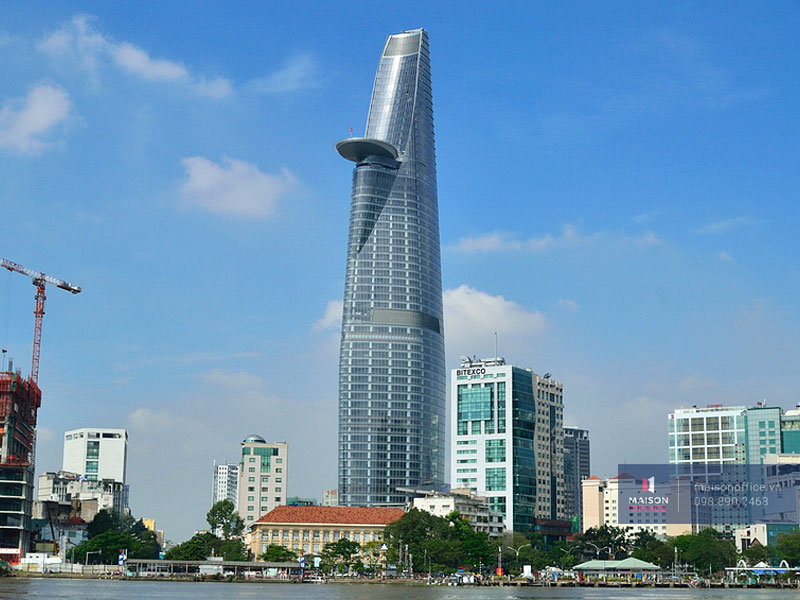
Opened in 2011, the Saigon Deck is on the 49th floor of the Bitexco Financal Towe, a 68-floor lotus-shaped skyscraper.
After purchasing the Saigon Skydeck ticket, you can enter the elevator to get to the observation deck on the 49th floor of the building. You can then enjoy a great view of Ho Chi Minh city.
Note:
- Check the weather forecast carefully to avoid a foggy day.
- If you don’t have time in the morning, the view at night is also worth it.
- Upgrade your ticket to enjoy Heineken beer while observing the view
Address: Bitexco Financail Tower, 2 Hải Triều street, Bến Nghé ward, District 1
Explore Saigon on Motobike
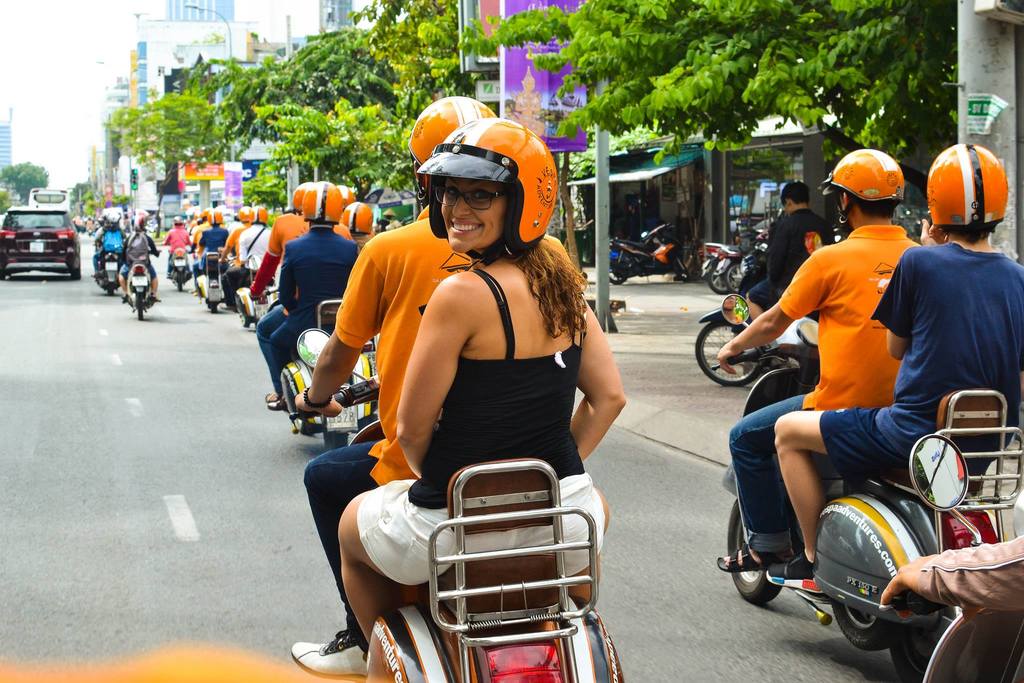
Saigon is undoubtedly the city of motorbikes, with more than 4.2 million motorbikes on the streets at peak hours.
While exploring Thailand with a tuk-tuk is a must-do, traveling in Vietnam on motorbikes is a great experience you should not miss.
You can rent a bike or book the tour to explore the city.
Note:
Although the renter usually doesn’t ask for your license when renting a bike, you may not get insurance if you have an accident. Thus, we recommend going on a motorbike tour for your safety and convenience.
Explore China Town Cho Lon
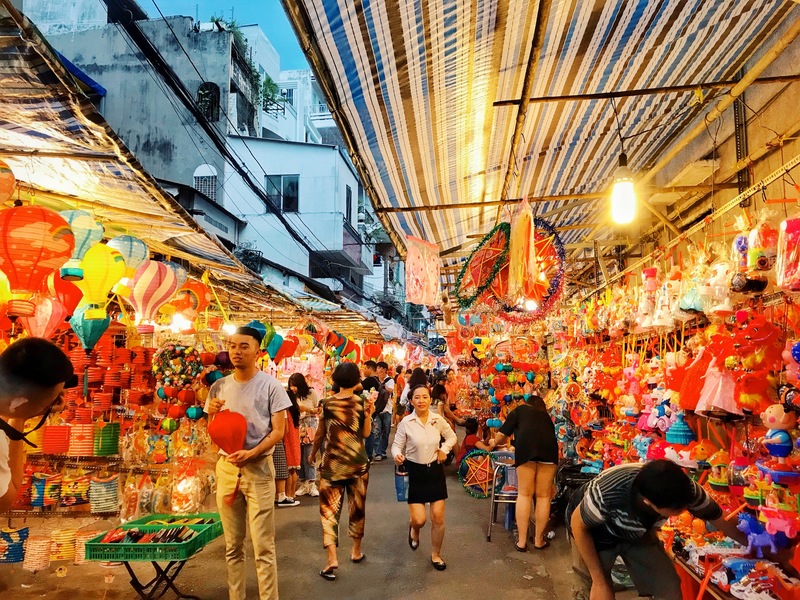
Saigon is home to different cultures, and the Chinese neighborhoods are one of the remarkable areas. China town, also known as Cho Lon, is located in District 5, District 11, and a part of District 6 of Ho Chi Minh City. This place focuses on the Chinese culture, cuisine, and unique architecture, mainly Chaozhou and Fujian, creating a unique feature in Saigon.
Here, you will feel like you are in a residential area of Hong Kong or lost in a world entirely built by the hands of the Chinese. Most of the houses in this area were built in the late 19th century with Chinese architecture.
War Remnants Museum
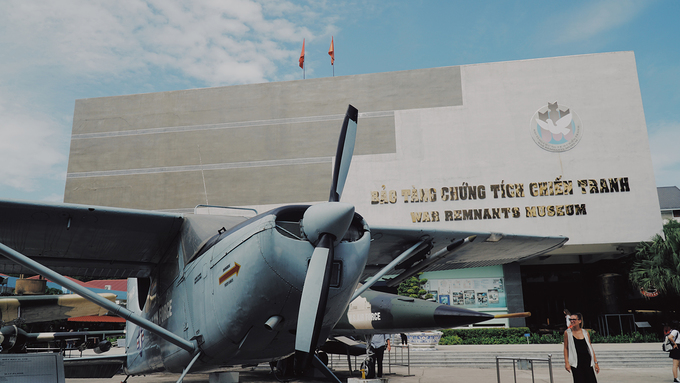
The War Remnants Museum is the most visited place in Ho Chi Minh city and a must on any trip to Viet Nam.
The museum was conceived by the Vietnamese Government in 1975 as an exhibition house to expose the real and exaggerated war crimes of the United States and the Puppet Government.
Following a tradition of similar exhibitions exposing war crimes of the French and Americans operating in Vietnam as early as 1954; the museum’s inception which was politically driven, showcased propaganda highlighting the horror of war.
Some of the exhibits in The War Remnants Museum may not be for the squeamish. However, it is an important and stark look at the wars that have shaped Vietnam and the long term effects on all who fought in them. Allow at least a half-day for this museum.
Notre Dame Cathedral Basilica
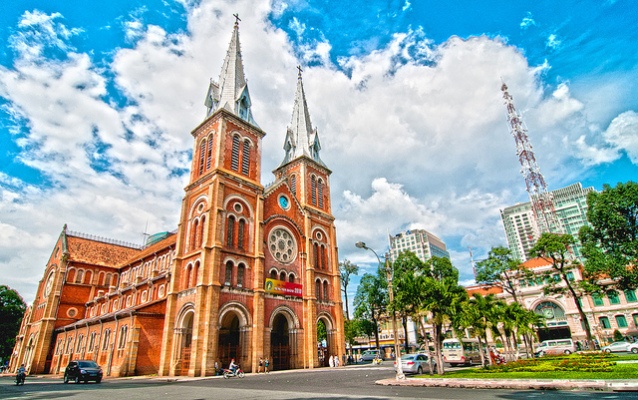
Constructed between 1863-1880 during the French colonial occupation of Vietnam, the Saigon Notre-Dame Basilica is one of the most iconic tourist attractions in Vietnam.
Modelled on the design of the original Notre Dame Cathedral in Paris, all the materials were shipped from France for the cathedral construction. The original church of Saigon was constructed from timber in 1863 which was quickly devastated by termites.
The Saigon Cathedral is currently undergoing a massive restoration that began in 2017 and is expected to remain closed to tourists until at least the middle of 2020. So, much like the original Notre Dame in Paris, the cathedral may currently only be viewed from the exterior grounds.
Cu Chi Tunnels
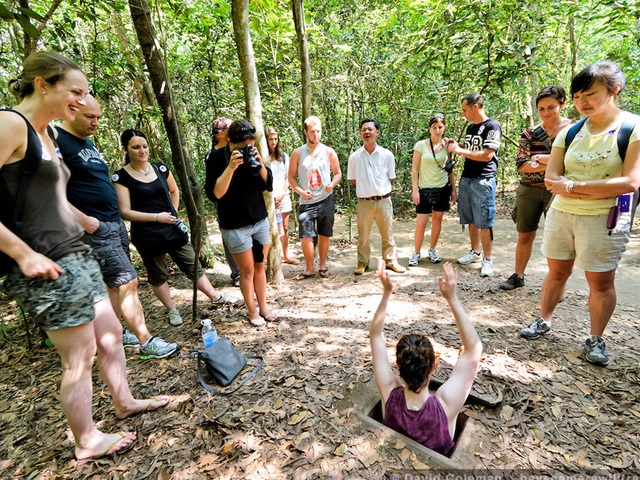
Cu Chi is 60 km from Ho Chi Minh city. The scenic landscape of rice fields and water buffalo are a stark contrast to the sheer devastation that took place in what was called a “Free Target Zone” during the Vietnam War.
Few places are more symbolic of Vietnamese determination and tenacity than Cu Chi. A 220 km subterranean network of tunnels, underground storage facilities, hospitals, and command centres honeycomb their way from just outside Ho Chi Minh city to the Cambodian border. The tunnel systems enabled the Viet Cong to counter the growing American military effort. While some of the tunnel network is multiple stories deep, much of it is very small, narrow and dark so not recommended for the claustrophobic.
Mekong Delta
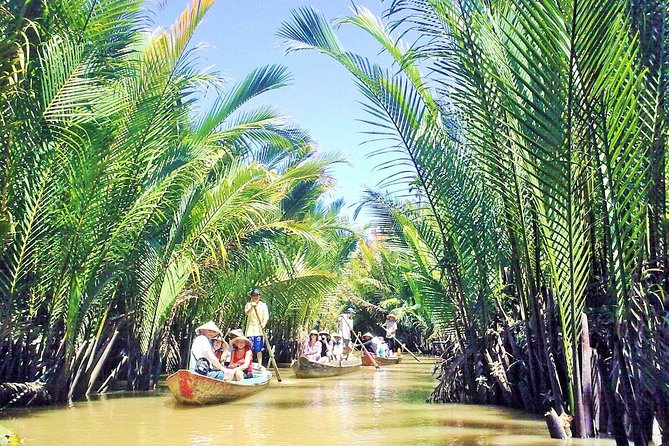
The Mekong Delta covers over 39,000 square kilometres of waterways and is one of the most densely populated areas in Vietnam. Starting in the Himalayas, the Mekong travels through China, Myanmar, Thailand, Cambodia and finally, Vietnam. Responsible for more than half of Vietnam’s rice cultivation and fishery, the river is vital to Vietnam’s economy and day to day life.
Life in the delta region revolves around the river. Discover the incredible variety of food and livestock grown in the region.
Visit the famous floating markets and villages that dot the banks of the Mekong. It is along the mighty Mekong where you can learn so much about Vietnamese culture.
